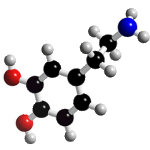Part 7: Excuse Smog: Affair Fog Theory Conclusion
 Affair fog theory makes a case to dismiss the cheater’s choices in an affair as the product of confused, compromised, or limited thinking, and provides the faithful spouse with a palatable narrative for the cheater’s behaviors.
Affair fog theory makes a case to dismiss the cheater’s choices in an affair as the product of confused, compromised, or limited thinking, and provides the faithful spouse with a palatable narrative for the cheater’s behaviors.
Each element of affair fog seeks to provide a palliative theory, suggesting that the affair was caused -to some degree at least- by involuntary, unmeditated, or reflexive responses. It applies an attractive sugar-coating over the issue of conscious choice in the cheater’s unethical behavior.
“The hardest thing to explain is the glaringly evident which everybody has decided not to see.”
~ Ayn Rand
The affair fog theory series has tackled each element in turn so we leave you with these final thoughts on each component:
1. Affair Fog: Mental Health
 It’s a remote statistical probability that a cheater is actually suffering from a mental health condition: Clearly not every cheater can be part of that small statistical pool, however much faithful spouses want to believe that it applies to their cheater.
It’s a remote statistical probability that a cheater is actually suffering from a mental health condition: Clearly not every cheater can be part of that small statistical pool, however much faithful spouses want to believe that it applies to their cheater.
Let’s accept, hypothetically, that all cheaters suffer from depression or a personality disorder (or any mental health disorder): Why would that excuse or mitigate the issues of conscious choice and responsibility, or explain why they acted unethically?
An affair does not indicate that someone is mentally compromised or incompetent: Cheaters manage their own affairs (though you may disapprove of their choices), they function within societal rules and laws outside of their affair, protect themselves financially in divorce, and retain access to children as responsible adults. There is no evidence in their behavior that suggests that they are not capable of making competent choices.
It’s absurd to suggest that a mental health issue -severe enough to compromise their reasoning, sanity, and personal responsibility- only applies to their affair decisions, their affair relationship, and their poor treatment of those who disapprove of their affair.
2. Affair Fog: Sex Addiction
 It is ridiculously easy to test positively as a sex addict: Three IHG staff took the test independently and in good faith, and all scored positively as sex addicts. The scores were definitive, far exceeding a questionable ‘borderline’ score. None of those who took the test have any sexual pathology whatsoever.
It is ridiculously easy to test positively as a sex addict: Three IHG staff took the test independently and in good faith, and all scored positively as sex addicts. The scores were definitive, far exceeding a questionable ‘borderline’ score. None of those who took the test have any sexual pathology whatsoever.
Sex addiction is not a recognized disorder or diagnosis. It’s an all too convenient excuse, relieving the cheater from the question of ethics, choice, and personal control by spuriously attributing poor behavior to an uncontrollable addiction.
3. Affair Fog: Character Change
 It can be tempting to subscribe to the idea that the cheater is somehow different to the ‘real’ spouse. It’s concerningly common on infidelity boards for faithful spouses to characterize different aspects of their cheater as distinct and separate personalities. In one particular case we encountered, a wife described her husband as five distinct and different ‘people’ in one post:
It can be tempting to subscribe to the idea that the cheater is somehow different to the ‘real’ spouse. It’s concerningly common on infidelity boards for faithful spouses to characterize different aspects of their cheater as distinct and separate personalities. In one particular case we encountered, a wife described her husband as five distinct and different ‘people’ in one post:
- The moral and righteous pillar of society whom she married.
- The husband whose flaws, paranoia, abuse and dishonesty were unchallenged and acceptable to her (as long as he stayed in the marriage).
- The hapless, led-astray cheater who, seduced and depressed, was confused and lost in the controlling arms of the other woman.
- The cruel and deliberately profligate rakehell who walked away from the marriage.
- The money-grubbing, solipsistic person she was divorcing (and it’s probably safe to assume that he will also be characterized as a different person after the divorce).
This element of affair fog theory is reckless, unhealthy, and potentially damaging - it attempts to excuse the ‘real’ spouse for their ‘cheater’ personality/behavior, by encouraging splitting.
4. Affair Fog: Morphing
 Psychological theory developed for use in market research cannot be legitimately applied to a cheater’s emphasis/obscuring of pre-existing aspects of personality.
Psychological theory developed for use in market research cannot be legitimately applied to a cheater’s emphasis/obscuring of pre-existing aspects of personality.
However, even if one were to reject the fact that morphing has no clinical application and continue to subscribe to it as part of affair fog, it leaves a sensible question about your future: Are you prepared to stay in a relationship with someone who is so frequently and extremely changeable that your own well-being is at the mercy of whatever personality they ‘morphed into’ on that day?
5. Affair Fog: Biochemistry
 Environment, society, and culture, cognitive process, and moral/ethical stance have a far greater influence and control over us than our biochemistry.
Environment, society, and culture, cognitive process, and moral/ethical stance have a far greater influence and control over us than our biochemistry.
We are not tools of our hormones. If we were, then a breastfeeding mother may as well admit that she’s mentally incompetent, out of control, morally and ethically deficient, addicted, insane, and a danger to society (and this sounds like an excellent case to protect children from all maternal care). It would be nonsense to assert that a nursing mother is magically exempt from the power of these super molecules but maintain that a cheater’s will is weakened or controlled by the same biochemistry.
Chemicals like dopamine and oxytocin are present in normal, healthy relationships without being accused of making/forcing/driving/compelling people into an addictive state. What suddenly makes it different, toxic, unhealthy, or addictive in an affair?
It’s easy to find a plethora of out-dated or ill-informed articles that support The Dopamine Defense. However, we strongly recommend that people take the knowledge, experience, current scientific findings, and interpretations of researching neuroscientists over that of family therapists.
Affair Fog vs Excuse Smog
Affair fog apologists often clarify that they aren’t trying to excuse the cheater’s behavior and that they are not trying to use affair fog theory as a way to render the cheater blameless. Instead they claim that the term ‘affair fog’ is a metaphor/description/analogy for the cheater’s behavior during the affair. It’s often suggested that ‘affair fog’ is simply shorthand, intended to convey a phase where the cheater was actively cheating or disengaged from the marriage in the aftermath of an affair.
But why use the term fog? If it’s merely shorthand for affair-related behavior, wouldn’t other words serve just as well? Why not simply call it ‘affair behavior’?
The answer is that fog is not just a term used to stand for cheater behavior: It is chosen deliberately to imply that the cheater wasn’t thinking clearly. Fog implies that the cheater was unable to anticipate the consequences of an affair, to see the true nature of the affair relationship, or to make rational choices.
The Fog as Justification
It’s difficult to validate reconciling with someone who deliberately behaved abominably towards their spouse and family: An unplanned one night stand might be the result of rash, impetuous choices, but a longer term affair requires orchestration and frequent, conscious decisions at every juncture of the relationship.
Cheaters aren’t the only ones who seek to justify dubious relationship choices: Faithful spouses are faced with justifying to family and friends why they didn’t exit the relationship. It is difficult to explain away the cheater’s consistent and deliberate decision-making in their affair. It becomes far easier and more palatable to instead attribute the cheater’s actions to foggy, addled thinking, or to forces over which they had compromised control.
“The more you can escape from how horrible things really are, the less it’s going to bother you…and then, the worse things get.”
~ Frank Zappa
Curing Infidelity: the Industry
Affair fog theory essentially characterizes the cheater as suffering from some form of disordered confusion - and there are a lot of people and programs positioned as a treatment or cure for the ‘affair disease state’.
The reconciliation services machine thrives on affair fog theory. It funds family therapists, affair experts, and affair-busting divorce remedies. There are numerous online programs, online infidelity coaches, counselors, and books that support the idea that your cheater is ‘suffering’ from a malady for which they can offer you a cure … at a price, of course.
Affair fog theory provides a foundation for an entire marital recovery industry - that you finance by your participation.
Curing Infidelity: the Redemption
Affair fog theory has a clear intent to rationalize as ‘disordered’ any behavior that is incongruous with the faithful partner’s expectations and values. Why, when we disapprove of their choices, do we call it fog but when we approve of their choices, we call it waking up? Waking up to your way of thinking maybe?
 Fog theory is seductive in part because it presumes to redeem, not just correct, the cheater. And in that redemption, the faithful spouse is once again important and empowered, transformed from that of a scorned, marginalized player to a central role in the cheater’s emergence from the fog, facilitating their return to the safe-haven of the marital relationship.
Fog theory is seductive in part because it presumes to redeem, not just correct, the cheater. And in that redemption, the faithful spouse is once again important and empowered, transformed from that of a scorned, marginalized player to a central role in the cheater’s emergence from the fog, facilitating their return to the safe-haven of the marital relationship.
The problem with this alluring line of thought is that it largely ignores the fact that the cheater made deliberate choices, and that to the cheater, the faithful spouse was acceptable collateral damage in pursuit of an affair.
Fog theory replaces the reality of deliberate choices with a belief that affair behavior is -in part- autonomic and reactive. It suggests that the cheater is driven by stressful circumstances and potent brain chemistry to a temporary, uncharacteristic suspension of rational, decent behavior.
Whatever circumstances exist to create an environment where a cheater chooses to have an affair, they don’t have irresistible power and they don’t suspend mental competency. The cheater is firmly in the driver’s seat.
Excuse Smog
Measurable, authentic, enduring, and personally motivated change in the cheater is necessary for successful reconciliation. But how can faithful spouses measure change if they can’t even see the cheater clearly through the comforting blanket of excuse smog in which they’ve wrapped themselves? And if they can’t see the cheater clearly, nor gauge real change, what are the odds of a successful reconciliation versus the recurrence of an affair? One might reasonably ask if it is the faithful spouse whose thinking is compromised and irrational.
“The truth will set you free, but first it will piss you off.”
~ Gloria Steinem
 Asking people to face the core truth of a cheater’s deliberate and rational choices doesn’t mean that reconciliation shouldn’t be an option. Instead, by facing the reality of the cheater’s choices, faithful spouses can gain the clarity they need to protect themselves, whether they reconcile or not.
Asking people to face the core truth of a cheater’s deliberate and rational choices doesn’t mean that reconciliation shouldn’t be an option. Instead, by facing the reality of the cheater’s choices, faithful spouses can gain the clarity they need to protect themselves, whether they reconcile or not.
Fog is an element of nature, providing cover, limiting one’s view, making it more difficult to navigate. Fog happens outside our control; smog is man-made, willful, and preventable. It’s easy to see that when it comes to cheating and fog theory, we’re dealing with smog.






